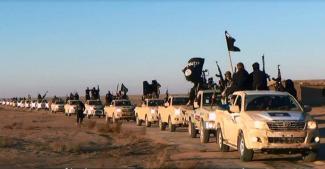Comment
Avoidable crisis

The speed of the advance of the extremist Isis (Islamic State in Iraq and Syria) militia in Iraq may seem surprising. Observers, however, could hardly fail to notice that new violence was brewing up in Iraq in recent years. And yet, it would have been possible to avoid strife.
From 2004 to 2008, Iraq was ravaged by civil war. Jihadis, Sunni tribes and secular Sunnis had risen up against the foreign occupying forces and Iraq’s transitional government. As they do today, the Sunni Arabs in Iraq felt marginalised by the new regime back then. Most had
a point.
Jihadis and groups close to al-Qaida gained strength in that conflict, but that did not last. The extremists’ arrogance and brutality – even towards Sunnis – were the reasons. Eventually the Sunni tribes turned against the fanatics and, in cooperation with the occupation forces, beat them. Political violence declined
by 95 %.
The years 2009 to 2011 saw an opportunity to bring stability to a peaceful Iraq. At that time, the majority of Sunni Arabs were prepared to become constituents of the new Iraqi state. Even Prime Minister Nuri Al-Maliki, a Shia Muslim, emphasised the national identity rather than sectarian ones. He had been made head of government by an elected parliament with US consent in 2006.
Unfortunately, Maliki did not grasp the opportunity to unify the nation and build a legitimate state. What he did was to expand his own power by resorting to increasingly sectarian tactics, marginalising the Sunni population and its leaders. He also upset many Kurds and Shias however. Under his rule, the new Iraqi state, which had been weak from the start, was captured by interest groups and militias. Clientelism, corruption and governmental impotence ensued. Though the parties that support Maliki recently won the most seats in parliamentary elections, they do not have enough seats to govern.
In 2011, civil war erupted in Syria. It escalated fast. This crisis gave the region’s Jihadis a new breath of air. They found new areas for military engagement as well as safe havens in Syria. Eventually, they began to advance in Iraq where Sunni discontent had grown to the point that extremist atrocities of the past seemed less relevant than fighting Maliki.
The power of Isis has grown considerably in the past weeks. However, the reason is not so much the militia’s strength, but rather the power vacuum that marks eastern Iraq as well as western Syria. On both sides of the border, Sunni people feel oppressed by regimes that are dominated by another version of Islam. To many of them, Isis and other rebel groups appear to be a minor evil in this setting. Air strikes and more weapons can do nothing about this. What is needed is a credible social contract that can serve as a foundation for the state.
In this difficult context, the Gulf monarchies’ role is a reason to worry. In pursuit of hegemony, they are lending the Jihadis various forms of support. They want to limit the influence of Iran, the country that is supporting the Assad regime in Syria.
An interesting new aspect of the current scenario is that the success of Isis in Iraq might lead Iran and the USA to cautiously attempt cooperation. Neither Washington nor Tehran want Sunni Jihadis to gain influence in Baghdad or Kabul. The snag is that reactionary forces in the USA as well as in Iran are doing their most to prevent any such cooperation.
Jochen Hippler is a political scientist who specialises in peace research at Duisburg-Essen University.
post@jochenhippler.de







